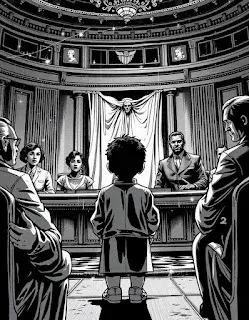Understanding the 1924 Convention
What Did the Convention Say?
The 1924 Convention had some focuses.
It shall be provided that every child shall be assured of food, education, and
healthcare. Also included was protection against neglect, abuse, and
exploitation. Visualize a large umbrella-the rights of children are under that
umbrella to protect them from harm or dangers in the world.
Basic Principles of the Convention
Right to Survival: Every child has
rights to survival; every child shall live and grow. Of course, this would mean
proper food, clean water, and the use of medications. Without these, how can
they grow healthy and strong?
Right to Education: Education opens
the road to a more decent life. The Convention provided that children should be
given the opportunity to learn and develop in safety.
Protection from harm: a child is
vulnerable. The convention, therefore, aimed to protect them from violence and
exploitation, acting like a shield from the harsh realities of life.
Why Was This Convention Important?
The Convention of 1924 was something
new. Until then, the rights of children had often been overlooked. It
established basic principles and put in motion what would provide the
groundwork for future agreements. Is it not remarkable to think how one
document can set in motion change for generations? It set the stage for other
key international agreements, such as the 1989 Convention on the Rights of the
Child, further developing its ideas and expanding rights even more.
Lasting Impact on Children's Rights
This convention did not only change
the conversation but provoked action. It made the governments of several parts
of the world realize their responsibility towards children. The laws and
policies started to get changed, and a more young-people-oriented approach came
into being. Hence, welfare started to get much consideration and became the
primary concern in many parts of the world.
A Foundation for Future Treaties
The 1924 Convention was proof that
unified voices, for a cause, bring about real change. It opened the door to
discussions related to the rights of children on an international level. These
ideas became building blocks for future treaties in helping to create a safer
and more supportive environment for each child.
The Road Ahead
While this was indeed a monumental
step, many children still suffer from poverty, lack education, and even
violence. Evidently, the work that started with this convention is still far
from complete. The legacy of the 1924 Convention should inspire us in advocating
for the rights of children today.
Conclusion: Call to Action
The 1924 Convention on the Rights of the Child is a hopeful and progressive document; it reminded the world in such a timely manner that every child deserves love, protection, and the right to reach its full potential. How will you share it? Let us combine our efforts and let these rights be known and protected on every corner of the globe. Every action counts! Let us continue working together for a future where each child shines.



